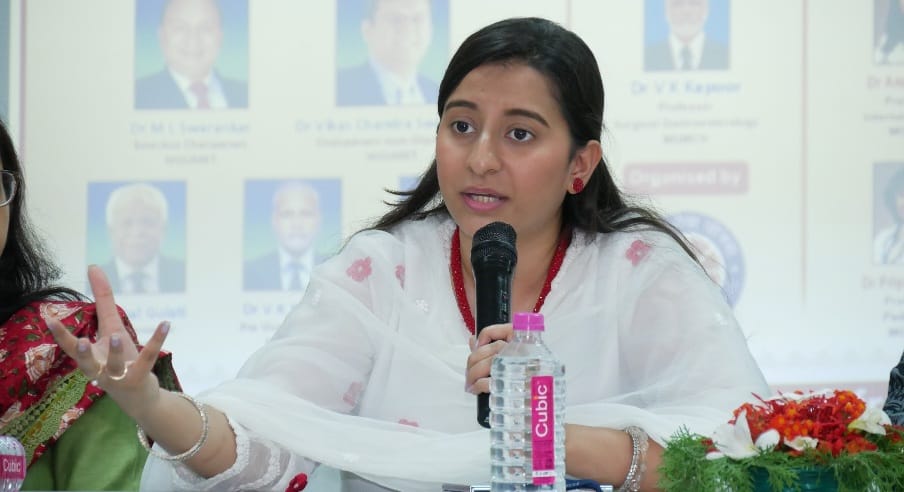Forgiveness is a crucial skill, but can you also forget what you’re forgiving — and should you?
Clinical psychology is an increasingly vital field in India, addressing the growing awareness of mental health issues and the need for effective treatment. As society becomes more open to discussing mental health, the demand for qualified clinical psychologists is on the rise. This blog post will explore the field of clinical psychology in India and provide a roadmap for those interested in pursuing this rewarding career.
Clinical psychology in India involves the assessment, diagnosis, and treatment of mental health disorders. It combines scientific principles with therapeutic techniques to help individuals lead healthier, more fulfilling lives. With the rising prevalence of mental health issues such as anxiety, depression, and stress-related disorders, clinical psychologists play a crucial role in promoting mental well-being and treating mental health disorders.
ROLE AND RESPONSIBILITIES OF A CLINICAL PSYCHOLOGIST
- Assessment and Diagnosis (Psychological testing)
- Conducting Evaluations: Use interviews, standardized tests, and observational techniques to assess clients’ mental health.
- Diagnosing Disorders: Identify psychological conditions based on assessment results, following established diagnostic criteria (e.g., ICD & DSM).
- Creating Treatment Plans: Develop individualized treatment plans tailored to the specific needs and goals of clients.
- Therapeutic Interventions (Psychotherapy and Counselling)
- Providing Therapy: Utilize various therapeutic modalities (e.g., CBT, psychodynamic therapy, humanistic approaches) to help clients address their mental health issues.
- Crisis Intervention: Offer immediate support and intervention for clients in crisis situations, including those experiencing suicidal thoughts or severe anxiety.
- Group Therapy Facilitation: Lead group therapy sessions to foster support and understanding among individuals facing similar challenges.
- Client Education and Support
- Psychoeducation: Educate clients about their diagnoses, treatment options, and coping strategies to empower them in their recovery.
- Family Involvement: Involve family members in the treatment process when appropriate, providing education and support to enhance the client’s support system.
- Research and Evaluation
- Conducting Research: Engage in research to contribute to the understanding of psychological disorders and treatment effectiveness.
- Evaluating Outcomes: Monitor and evaluate the effectiveness of interventions and treatment plans, adjusting as necessary based on client progress.
- Advocacy and Awareness
- Raising Awareness: Advocate for mental health awareness and destigmatization within the community.
- Policy Development: Participate in developing policies and programs that promote mental health resources and access.
- Professional Development
- Continuing Education: Stay updated on the latest research, techniques, and best practices in clinical psychology through ongoing education and training.
- Supervision and Mentoring: Provide supervision and mentorship to trainees or interns in clinical settings.
- Collaboration
- Interdisciplinary Teamwork: Collaborate with other healthcare professionals (e.g., psychiatrists, social workers, nurses) to provide comprehensive care for clients.
- Referrals: Make referrals to other specialists when necessary, ensuring clients receive appropriate and holistic care.
HOW TO BECOME A LICENSED CLINICAL PSYCHOLOGIST IN INDIA
- Educational Background
Undergraduate Degree:
- Bachelor’s Degree: Start with a bachelor’s degree in psychology (B.Sc. in Clinical Psychology). This typically takes four years and provides foundational knowledge in psychological concepts and theories. The course has to be recognised from Rehabilitation Council of India. (RCI)
Postgraduate Degree:
- Master’s Degree: Pursue a Master’s in Psychology (M.A. or M.Sc.) with a specialization in clinical psychology. This two-year program includes theoretical coursework, practical training, and often a research component. The course has to be recognised from Rehabilitation Council of India. (RCI)
- Obtain Licensure and Certification
- Rehabilitation Council of India (RCI): The Rehabilitation Council of India (RCI) is a statutory body established by the Government of India in 1992 under the Rehabilitation Council of India Act, 1992. Its primary objective is to regulate and monitor the training and practice of rehabilitation professionals in India, including clinical psychologists, special educators, and rehabilitation therapists. The council issues registration and licenses to qualified professionals, which is essential for practicing legally in India. This process helps maintain the quality and integrity of services provided by rehabilitation professionals.
- Gain Practical Experience
- Internships and Clinical Training: During your master’s program, complete internships or clinical training in hospitals, mental health clinics, or community organizations. Hands-on experience is crucial for developing therapeutic skills.
- Doctoral Degree (Optional but Recommended)
- D. or Psy.D.: While not mandatory, obtaining a doctoral degree in clinical psychology can enhance your career prospects, allow for specialization, and provide opportunities in research and academia.
- Specialization (Optional)
- Consider pursuing additional certifications, diplomas in specialized areas such as child psychology, neuropsychology, or addiction counseling to broaden your expertise and improve job prospects.
- Stay Updated
- Engage in continuing education and professional development by attending workshops, conferences, and training programs to stay informed about the latest research and techniques in clinical psychology.
JOB OPPORTUNITIES OF CLINICAL PSYCHOLOGIST
Clinical psychologists play a vital role in mental health care, and their expertise is in high demand across various sectors. Here’s a comprehensive overview of potential job opportunities for clinical psychologists:
- Hospitals and Mental Health Clinics
- Inpatient and Outpatient Services: Work in psychiatric hospitals or mental health clinics providing assessments, therapy, and crisis intervention.
- Specialized Units: Join specialized units (e.g., child and adolescent psychiatry, addiction treatment, geriatric psychology).
- Private Practice
- Therapeutic Services: Establish a private practice offering individual, group, and family therapy.
- Consultation Services: Provide expert opinions or consultations for other healthcare professionals and organizations.
- Educational Institutions
- School Psychologist: Work in schools providing counseling and support for students with emotional or behavioral issues.
- University Settings: Teach courses on psychology or conduct research in academic institutions as Assistant Professor of Clinical Psychology.
- Corporate Sector
- Employee Assistance Programs (EAPs): Help organizations implement mental health programs and provide counseling to employees.
- Workplace Wellness Initiatives: Develop and facilitate mental health workshops and training for employees.
- Community Organizations and NGOs
- Counseling Services: Provide mental health support in community centers, non-profits, or NGOs focusing on mental health awareness and advocacy.
- Program Development: Design and implement community outreach programs to promote mental health.
- Research Institutions
- Clinical Research: Engage in research studies focused on mental health interventions and outcomes, contributing to the development of evidence-based practices.
- Data Analysis: Work on analyzing data related to psychological assessments and treatment efficacy.
- Government Agencies
- Policy Development: Contribute to mental health policy formulation and implementation in government health departments.
- Public Health Initiatives: Work on programs aimed at improving community mental health and well-being.
- Telehealth Services
- Remote Therapy: Provide online counseling and therapy sessions, a growing area especially post-pandemic.
- Digital Mental Health Platforms: Collaborate with tech companies to develop and deliver mental health apps and online resources.
- Specialized Clinics
- Rehabilitation Centers: Work in facilities specializing in addiction recovery, trauma, or disability rehabilitation.
- Child and Adolescent Centers: Focus on mental health issues specific to younger populations.





Comments
adamgordon
Thanks for this great post!
miaqueen
Thanks for sharing 🙂